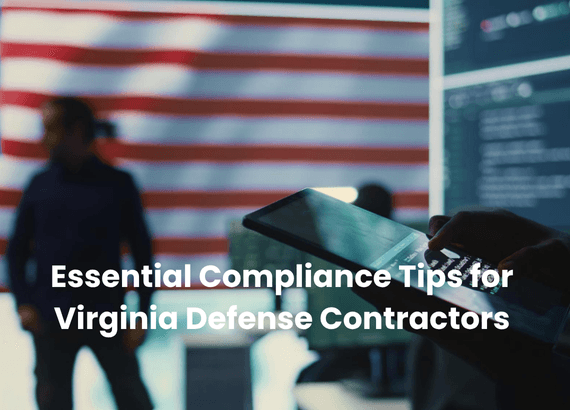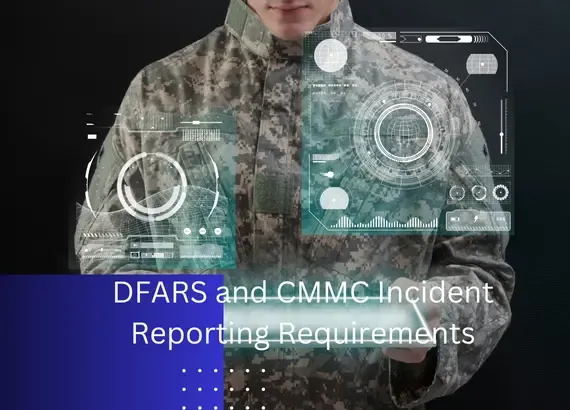
ITAR & CMMC Compliance Tips for Maryland’s Aerospace Industry
Introduction: Why Compliance Matters in Maryland’s Aerospace Industry
Maryland’s aerospace sector plays a vital role in supporting U.S. defense and national security. With contractors handling sensitive technical data, defense export controls and cybersecurity have never been more critical.
Meeting ITAR compliance and achieving CMMC certification are now non-negotiable requirements for aerospace companies that want to continue working with the Department of Defense (DoD). Beyond avoiding penalties, compliance strengthens supply chain security and safeguards America’s most sensitive technologies.
Understanding ITAR: Protecting Export-Controlled Information
The International Traffic in Arms Regulations (ITAR) govern the export of defense-related articles, technical data, and services.
Maryland aerospace businesses, ITAR compliance means:
- Securing export-controlled technical data from unauthorized access.
- Restricting access to foreign nationals without proper licensing.
- Maintaining strict documentation and reporting of controlled activities.
Failure to meet ITAR regulations can lead to severe fines, loss of DoD contracts, and reputational damage.
CMMC Essentials: Cybersecurity Standards for Contractors
The Cybersecurity Maturity Model Certification (CMMC) was designed to ensure defense contractors adopt strong cybersecurity practices.
Maryland’s aerospace companies, CMMC compliance involves:
- Protecting Controlled Unclassified Information (CUI).
- Implementing access controls, encryption, and incident response systems.
- Meeting the appropriate CMMC certification level based on contract requirements.
Without a valid CMMC certification, contractors cannot bid for or maintain DoD contracts.
Top Compliance Challenges Aerospace Companies Face in Maryland
Maryland-based defense and aerospace contractors often struggle with:
- Complex IT environments that make security monitoring difficult.
- Evolving ITAR regulations and CMMC requirements.
- Vendor and supply chain risks where third-party partners introduce vulnerabilities.
- Employee awareness gaps that increase risks of insider threats or unintentional violations.
Step-by-Step Guide to Achieving ITAR Compliance
- Conduct a Gap Assessment – Identify where your current practices fall short of ITAR regulations.
- Secure Technical Data – Use encryption and access restrictions to safeguard export-controlled information.
- Develop Written Policies – Clearly document ITAR compliance procedures and escalation steps.
- Restrict Access – Ensure only U.S. citizens or licensed individuals access controlled data.
- Regularly Audit Processes – Ongoing monitoring is key to demonstrating compliance readiness.
Best Practices for Meeting CMMC Requirements
To strengthen cybersecurity compliance under CMMC:
- Perform a Readiness Assessment against NIST 800-171 requirements.
- Implement Multi-Factor Authentication (MFA) to reduce credential-based attacks.
- Use Endpoint Detection & Response (EDR) for real-time monitoring.
- Document Policies & Procedures as evidence for CMMC auditors.
- Engage a CMMC consultant to guide certification preparation.
Explore More: How to Set Up Incident Reporting & Response Plans Under CMMC & DFARS
How to Align ITAR & CMMC for a Stronger Security Posture
ITAR focuses on controlling physical and digital export information, while CMMC compliance ensures protection of CUI through cybersecurity controls.
Maryland aerospace companies can align both by:
- Integrating ITAR compliance policies with cybersecurity frameworks.
- Mapping ITAR-controlled data flows to CMMC security controls.
- Conducting joint compliance audits to avoid duplication of efforts.
- Building a holistic defense contractor compliance strategy across people, processes, and technology.
Technology Tools to Simplify Compliance Management
Leveraging the right tools helps streamline compliance:
- Governance, Risk, and Compliance (GRC) Platforms for tracking requirements.
- Data Loss Prevention (DLP) Tools to prevent unauthorized data transfers.
- SIEM Systems (Security Information and Event Management) for real-time threat detection.
- Secure Collaboration Platforms for controlled sharing of sensitive data.
The Role of Employee Training in Sustaining Compliance
Even the best technology cannot prevent breaches caused by human error. Maryland aerospace companies must:
- Train employees on ITAR regulations and handling controlled data.
- Educate staff on cybersecurity compliance best practices under CMMC.
- Conduct phishing simulations and insider threat awareness sessions.
- Make compliance training an ongoing—not one-time—effort.
Conclusion: Future-Proofing Maryland’s Aerospace Businesses through Compliance
For aerospace companies in Maryland, achieving both ITAR compliance and CMMC certification is more than a contractual obligation—it is a competitive advantage.
By addressing defense contractor compliance challenges, strengthening supply chain security, and investing in employee training, businesses can safeguard sensitive defense data while securing long-term partnerships with the DoD. Compliance is not a checkbox it is the foundation of a cyber-resilient aerospace industry in Maryland.


